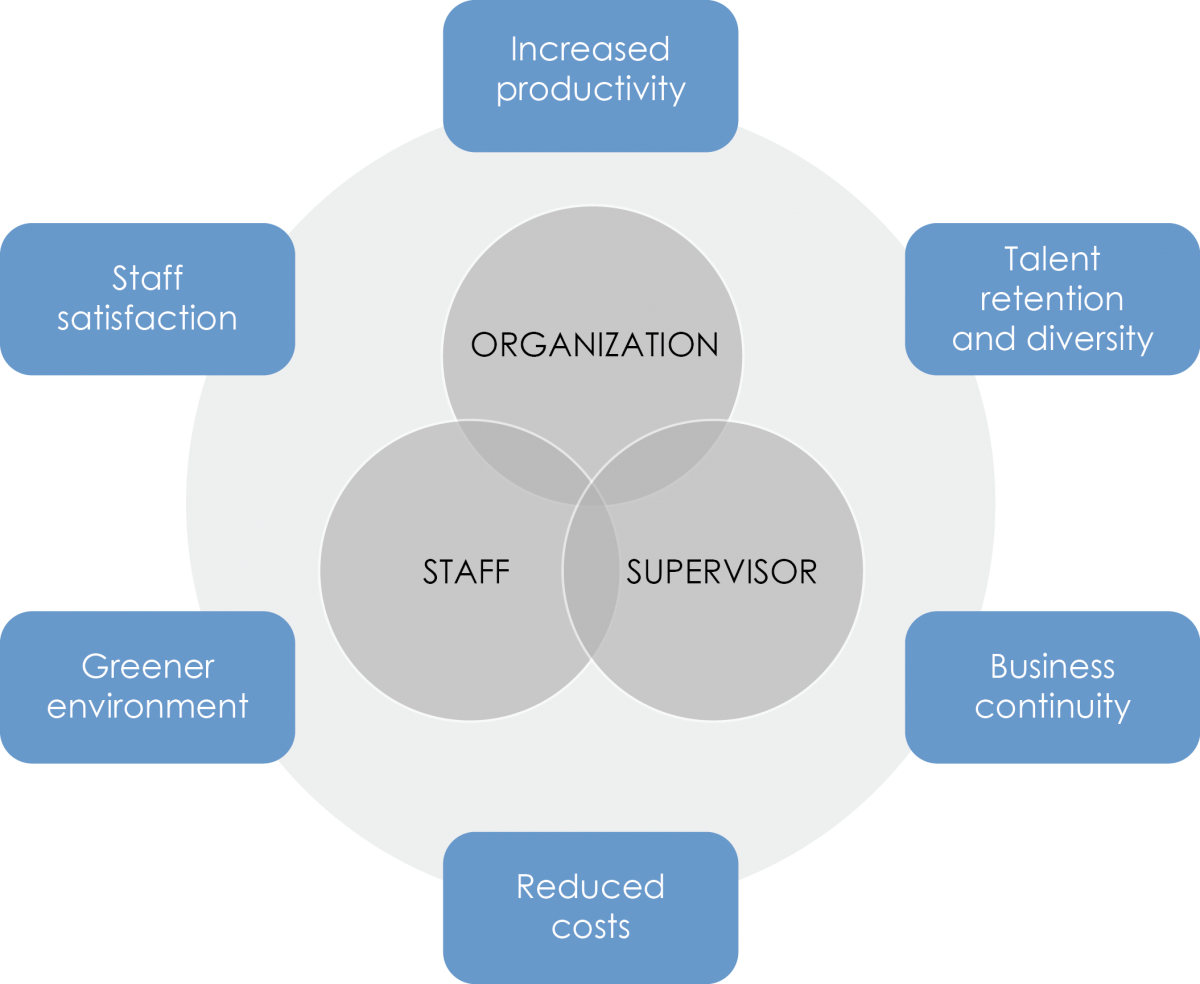Benefits of Flexible Working Arrangements
Flexible working arrangements (FWA) have become part of the modern workplace. Research shows that FWAs bring considerable advantages to organizations, staff and supervisors.

FWA require setting up clear goals and deliverables, which drives a culture focused on results and accountability.
Increased productivity can be generated through enabling staff who need quiet spaces to work effectively on particular tasks (e.g. report writing).
Scheduled break for external learning activities allows staff members to develop their skills and be more productive.
FWA enable organizations to retain highly qualified staff members and increase their ability to attract a highly skilled workforce in the global context.
FWA help the Organization reach its gender parity goals.
FWA also attract a diverse pool of talent, including individuals with disabilities.
FWA help organizations save costs related to absenteeism. Staff member can alter their work schedule to accommodate personal events rather than taking leave.
Satisfied staff members are less likely to look for more flexible employers, which reduces staff turn-over, hiring and related training costs.
Healthy staff members help organizations save medical costs caused by stress.
FWA benefit business continuity by allowing staff members to work remotely on certain circumstances (e.g. transport strikes, disease epidemics), weather conditions or other unforeseeable events.
Flexibility is becoming a requirement in the global context. IT and security systems have to be monitored and maintained 24/7 and staff members may need to work outside regular business hours to connect with international colleagues or in emergency situations.
FWA have a positive effect on staff engagement, motivation and satisfaction. They feel trusted and supported.
FWA improve work-life balance and well-being of staff.
FWA reduce time and costs of commuting during rush hours, contributing also to a greener environment.
Depending on the flexible working arrangement selected, FWA may reduce childcare expenses.
Telecommuting drives the use of the full array of technological tools available (e.g. Unite docs, Unite Connections, WebeX etc.)
Telecommuting helps staff members focus on their tasks by reducing distraction and interruptions.
FWA help supervisors apply a result-driven approach based on trust, staff empowerment and accountability.
They allow managers to become more flexible in their approach, enhance their human resources management skills and foster the use of technology.
